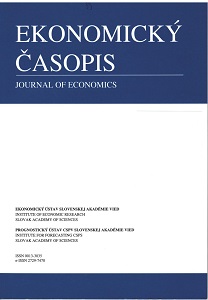Assessing Permanent and Transitory Volatility Spillover Effect from Oil to Stocks in Baltic and Visegrad Countries
Assessing Permanent and Transitory Volatility Spillover Effect from Oil to Stocks in Baltic and Visegrad Countries
Author(s): Dejan Živkov, Marina Gajić-Glamočlija, Jasmina Đurašković, Mirela MomčilovićSubject(s): Supranational / Global Economy, Financial Markets
Published by: SAV - Slovenská akadémia vied - Ekonomický ústav SAV a Prognostický ústav SAV
Keywords: transitory and permanent volatility transmission; Brent oil; stock indices; CGARCH; robust quantile regression;
Summary/Abstract: This paper researches the size of volatility transmission from Brent oil market to six stock markets of Central and Eastern European countries, with a distinction between the short-term and long-term effect. We create the transitory and permanent parts of volatilities by using the component GARCH model with the optimal density function and inserted dummy variables. Created volatilities are subsequently embedded in the robust quantile regression framework. The results indicate that the transitory volatility shocks are higher than the permanent ones, which means that investors who operate in the short-term horizons need to be more careful for volatility spillovers from oil market than long-term investors. We find that Polish and Czech stock markets receive the strongest volatility impact from oil. On the other hand, Hungarian and Lithuanian stock markets suffer the lowest volatility effect, in both short and long terms, which favors combining these indices with oil. All the findings can be explained very well by the weight of industry sector in GDP and the net-import of oil. Results of weekly data serve as robustness check for the main findings.
Journal: Ekonomický časopis
- Issue Year: 70/2022
- Issue No: 06
- Page Range: 523-543
- Page Count: 21
- Language: English

